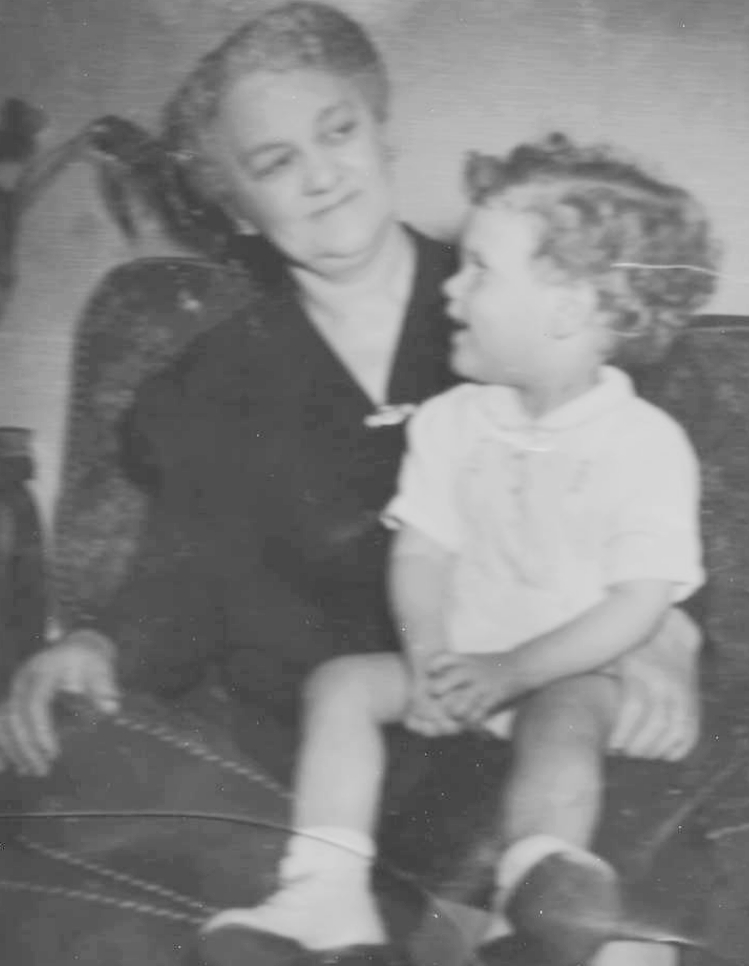Aaron Leibel: Me, Before Israel and Aliyah
My new memoir, Figs and Alligators, begins with me at university about to meet Bonnie, who would become my wife. Sure, in a sense my life began then. It’s hard for me to remember being single — a lot of that proverbial water has passed under that acclaimed bridge since then — but there was life before Figs.
I was born in Baltimore 37 days after the Japanese attacked Pearl Harbor.
My father was a refugee from Nazi-controlled Austria who, at 47 when he arrived in this country, never really adjusted to American life and had a tough time supporting his family. My mother was a second-generation American, whose parents had immigrated to the U.S. from Latvia and Germany. Her brother, Sylvan, owned the Michaelson Motors Volvo dealership on Reisterstown Road in Baltimore and her other brother Herbert was associate editor of the IBM Journal of Research and Development.
I had three siblings. Herbert — my older half-brother, son of my father — got out of Nazi-controlled Vienna in 1938 on a Kindertransport to England. A cousin on his mother’s side of the family brought him to the U.S., where she adopted him. A psychologist, he owned and ran a firm helping police forces evaluate potential and active police officers, before his death two years ago.
My younger sister Rhona — without question, the pick of our family litter — recently has retired as professor of philosophy at Metropolitan State University in Minneapolis. She seems perfectly happy living with her husband Gary and being close to her sons Judson and David and her grandchildren, even though she is able to emerge from her igloo for only two weeks a year.
The baby of the family, Gary, a car salesman and later driving instructor, died in April 2020, perhaps of Covid 19 (no autopsy was performed). Unfortunately, he had a troubled and unhappy life.
My major contribution to the family as a child was renaming a relative, giving her a moniker that stuck throughout her life. At 2, I apparently was walking around saying “Gigi, Gigi” — alas, Gigi Winters, my Gigi was pronounced with hard g’s — all the time. No one could figure out what I was talking about until one day, I was on the landing outside our second floor apartment when my grandmother arrived for a visit. I looked down the stairs and started yelling “Gigi, Gigi, Gigi.”
The name stuck. I was the number one grandchild on my mother’s side of the family, and my siblings and all six of our cousins called her “Gigi.” Not only did her grandchildren adopt that name, but her children ditched “Mother” for Gigi as well. Even some of her friends got on the “Gigi” bandwagon. She seemed to accept the name change with equanimity.
One of the few activities I remember from those days was the family’s weekly walk to my friend Calvin Posner’s house to watch The Milton Berle Show (we had no TV).
When I was 8, we moved out of our apartment in the inner city — Ducatel Street between Eutaw Place and Linden Avenue, two blocks above North Avenue — to the Pimlico neighborhood, not far from the racetrack and almost across the street from what would become the “new” Sinai Hospital. My Great Uncle Emanuel provided the downpayment for our semi-detached house.
Uncle Emanuel was our rich relative — most families have at least one of those. I can remember the three of us being dressed in our finest outfits waiting for his arrival. Don’t run around the apartment and mess up your clothes, our mother would admonish us.
He was a bachelor, he apparently liked my mother and we were his poorest relatives, so hopes ran high. Apparently, we were the main beneficiaries of his estate, but right before he died, he changed his will, leaving most of his money to “the lodge.”
At least he bequeathed us enough money to buy a washer and a dryer so my mother could stop washing clothes in the bathtub. She also purchased a dining room set and a high fidelity record player. Apparently, the money ran out after that. and she was able to buy only one record — the music from the movie “Oklahoma.” I heard the songs from that record so often that almost 65 years later, I still remember most of the lyrics.
Tragedy struck in 1957 when my mother died of breast cancer at 45; I was 15, Rhona was 12, Gary 9. It was a catastrophe for all her children, but especially for Gary, who needed special attention, which he did not get from our father.
I became bar mitzvah at Synagogue Center, a very small synagogue located in a house on Park Heights Avenue, whose spiritual leader was Rabbi Samuel Vitsick. The most notable activity that day was the two-hour walk home from that shul to my house undertaken by me and a small group of friends.
As a child, I began my lifelong love affair with the Baltimore Orioles and the (then) Baltimore Bullets, now the Washington Wizards. (I, like the whole city when I was a kid, adored the Baltimore Colts until, while I was innocently living my life in Israel, the team was yanked out of the city in the middle of the night — figuratively, if not literally — and moved to Indianapolis.)
I haven’t lived in Baltimore for almost 60 years, but my passion for the Orioles and Bullets (phooey on the name Wizards) has only grown. I guess, as the saying goes, you can take the boy out of Baltimore, but you can’t take Baltimore out of the boy.
Because of my birthday in January, I had started school in the second semester. To correct this problem — I’m not sure why it was a problem — I spent one summer going to school at Johns Hopkins University and as a result, skipped the second semester of the second grade.
For junior high school — now middle school — I attended Robert E. Lee Junior High School in downtown Baltimore, a special school where students were credited with having passed three grades after two years of school.
Therefore, I graduated from high school — Forest Park High School with a student body that was 75 percent girlish — and began university at 16, not something that I would recommend.
In my senior year, I met Bonnie. Sorry, but the rest is in the book.
^^^
Veteran journalist Aaron Leibel writes for The Jerusalem Post and Washington Jewish week. He is the author of the acclaimed memoir, Figs and Alligators: An American Immigrant’s Life in Israel in the 1970s and 1980s, available from Amazon in Kindle and paperback, Barnes and Noble, and at every local bookstore in the U.S. and Canada.



